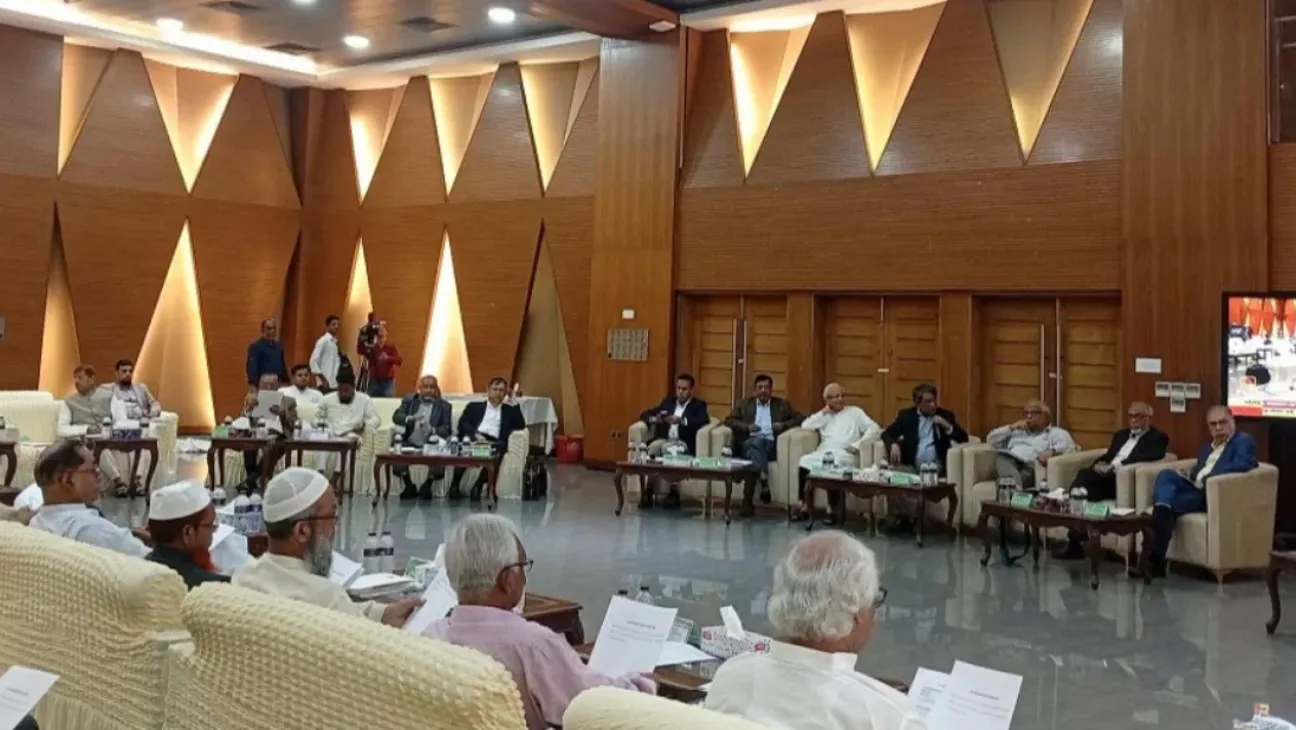The National Consensus Commission has recommended the creation of a 100-member Upper House of Parliament in Bangladesh, to be filled through a proportional representation system based on each party’s share of the national vote.
The decision came Thursday during the final day of the commission’s second phase of dialogue with political parties at the Foreign Service Academy in Dhaka.
The political landscape immediately split over the proposal. On one side, smaller parties and a majority of left-leaning organizations hailed it as a modern, global standard.
Meanwhile, the Bangladesh Nationalist Party (BNP), along with its coalition partners in the 12-party alliance, rejected the plan out of hand. For them, it was a matter of respecting the direct election results. They insisted that the Upper House must reflect the actual seats won in the Lower House, rather than being tied to the less direct national vote share.
“We proposed an Upper House to include qualified individuals from various sectors, but they must reflect the seat distribution of the elected house,” said BNP Standing Committee Member Salahuddin Ahmed. “An unelected chamber must not have any constitutional amendment powers.”
A new proposal from the commission would fundamentally change Bangladesh’s parliament, moving it away from the traditional “winner-takes-all” system. Under the plan, parties would get to nominate Upper House members based on their share of the vote in a general election. Vice-Chairman Professor Ali Riaz explained that a final draft of the reform plan will be given to all parties soon, with a signing ceremony to follow.
Debates turned tense during Thursday’s session. A verbal clash broke out between 12-party alliance coordinator Syed Ehsanul Huda and National Citizens Party leader Zaved Rasin after Huda questioned the role of some parties in the 2023 uprising. The confrontation ended only after Huda issued a public apology during the lunch break.
The commission also recommended limiting the legislative powers of the Upper House. It would be able to review and comment on bills but could not permanently block legislation. If the Upper House does not respond within a month, a bill would be considered approved. Rejected bills would return to the Lower House with recommendations, where final authority would remain.
In another significant move, the commission proposed transferring the authority to appoint the heads of the Army, Navy, Air Force, Directorate General of Forces Intelligence (DGFI), and National Security Intelligence (NSI) directly to the president. This measure drew mixed reactions.
The BNP made the case that lawmakers should have to sign off on major government appointments, like those for the Public service and Anti-Corruption Commissions. They believe this kind of legislative oversight is necessary to keep these bodies accountable.
Bangladesh Jamaat-e-Islami threatened legal action if the upcoming July Charter does not carry binding legal authority.
“Without a legal foundation, the whole process becomes a farce,” said Nayeb-e-Ameer Syed Abdullah Mohammad Taher. “We won’t sign anything that’s not immediately actionable.”
He added that proportional representation is a global standard, noting its adoption in over 90 countries.
Professor Riaz said the final charter would include both consensus points and dissenting positions. He indicated that a signing ceremony is expected soon, closing a chapter in the commission’s effort to build political unity after the fall of the Awami League government.









